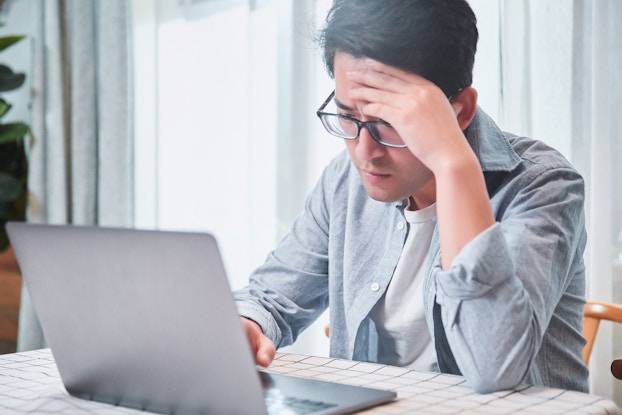
In late December 2020, the CASE Act was signed into law provisioning a new avenue for certain copyright infringement cases to be tried in small claims court. This act sets up a three-judge panel of experts to hear cases with damages capped at $15,000 per claim, $30,000 in total.
This tribunal likely won’t be formalized until the second half of 2021. Until then, if someone violates your copyright, you still have options available. Here’s what you can do to protect your small business’s copyrighted intellectual property:
[Read more: Intellectual Property: Differences Between Patent, Copyright and Trademark Laws]
What qualifies as copyright infringement?
The U.S. Copyright Office defines copyright as a “bundle of exclusive rights” to the owner of a creative piece of work. Specifically, copyright protects any original material by the author, from literary works (poetry, novels, scripts) to music to artistic works and even includes computer software and architectural designs.


One of the advantages of copyright protection is that you do not need to register with the U.S. Copyright Office to protect your work. “Your work is under copyright protection the moment it is created and fixed in a tangible form that it is perceptible either directly or with the aid of a machine or device,” said the U.S. Copyright Office. It’s worth noting that copyright does not protect facts or ideas.
Copyright provides the exclusive right for the owner of the work to:
- Reproduce copies of the work.
- Sell copies of the work to the public.
- Prepare “derivative works” of the original (e.g., translate a novel into a different language).
- Perform or display the work in public.
As such, copyright infringement occurs when anyone other than the owner violates these exclusive rights. If someone sells a copy of your e-book without your permission, for instance, that’s a potential copyright violation.
Exceptions to copyright infringement: fair use
The doctrine known as fair use complicates copyright violation cases slightly. “Fair use is the right to use a copyrighted work under certain conditions without permission of the copyright owner,” explained the Harvard Office of the General Counsel. “The doctrine helps prevent a rigid application of copyright law that would stifle the very creativity the law is designed to foster.”
You can find the specifics of fair use in Section 107 of the Copyright Act. As this section outlines, fair use of work for purposes such as news reporting, teaching and discourse (e.g., criticism and comment) is not an infringement of copyright protection. It’s worthwhile to review what counts as fair use before attempting to litigate your claim in court.
Your work is under copyright protection the moment it is created and fixed in a tangible form that it is perceptible either directly or with the aid of a machine or device.
U.S. Copyright Office
What to do if someone violates your copyright
Litigation is one option you have if you believe someone has violated your copyright. But until the CASE Act small claims tribunal is set up, taking your case to court may be your best last resort, as copyright cases can be expensive.
Before you head to court, see if you can resolve the copyright infringement amicably without lawyers. Contact the person to let them know that you detect a copyright violation. Err on the side of giving someone the benefit of the doubt, and see if they made an innocent mistake in plagiarizing your original work.
If they claim they haven’t violated your copyright, there are other steps you can take to have the content removed (in cases of written material on the internet, for instance). “The next step is to contact the company hosting the site (aka the "online service provider" or "OSP") and ask it to disable the infringing site,” according to Moz. “The DMCA [U.S.'s Digital Millennium Copyright Act] provides incentives for OSPs to disable infringing sites by offering them immunity from lawsuits if they respond quickly to take-down notices.”
It’s also critical to establish evidence of ownership at this juncture. Make sure you have original hard copies of your copyrighted work, as well as any drafts or works in progress to support your ownership claim. If you haven’t registered your work with the U.S. Copyright Office, it’s not necessary to do so, but can definitely help your case.
[Read more: How to Prove Intellectual Property Theft]
Finally, if the person still violates your copyright, you may need to take the case to civil court. There are organizations that offer services to authors and copyright owners, such as Volunteer Lawyers for the Arts, at a lower cost than a regular attorney. If you believe that there’s been a criminal infringement of your copyright, you can also take your case to the Intellectual Property (IP) Program of the Financial Institution Fraud Unit of the Federal Bureau of Investigation.
CO— aims to bring you inspiration from leading respected experts. However, before making any business decision, you should consult a professional who can advise you based on your individual situation.
Follow us on Instagram for more expert tips & business owners’ stories.
CO—is committed to helping you start, run and grow your small business. Learn more about the benefits of small business membership in the U.S. Chamber of Commerce, here.







